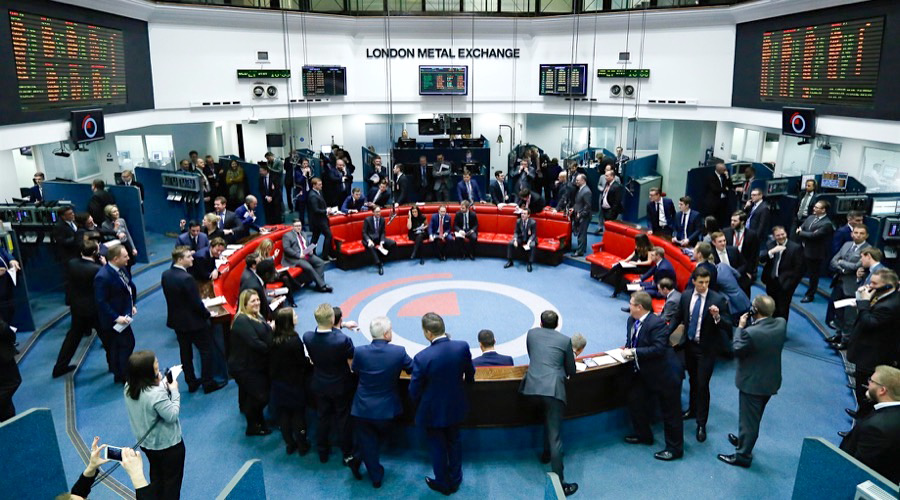
* Slashes fees for short-dated carry trades
* Makes no changes in complex date structure
* Makes changes ahead of launch of rival trading platform (Adds quote, details)
The London Metal Exchange sought on Thursday to win back trading volumes by proposing a cut in fees for trades crucial to its physical user base as rivals gear up to offer alternatives.
The exchange has been battling to reverse declines in volumes partly triggered by large rises in trading fees in 2015 that were introduced to lift profits for its Hong Kong owner.
The 140-year-old exchange, the world’s oldest and the largest industrial metals market, has been seeking to strengthen its position as copper volumes rise on the CME, the rival U.S. market. It was also moving before next year’s launch of metals trading platform NFEx Markets.
“I hope we’ve now found the right balance to go forward together,” Chief Executive Matt Chamberlain told a briefing, announcing results of a discussion paper released in April.
He said the LME planned to make sharp cuts in short- and medium-dated carry fees from Oct. 1. Short-date trades or carries are those between one and 15 calendar days ahead.
“We hope the market will work with us on the basis of this lower fee schedule to bring their business back,” he said.
But he said the exchange would also introduce new fees for dealers who used LME prices as a reference for their over-the-counter (OTC) transactions.
That would help offset any loss in fee income for the LME’s parent, Hong Kong Exchanges and Clearing Ltd..
SENSIBLE CHANGES
The changes drew a cautiously positive response from LME users.
“It’s sensible, a tacit acknowledgement that the fee hike had an impact,” said the head of a metals brokerage.
A senior copper trader said: “We’ll now have to wait and see if all that volume that went OTC will come back. Some of it might, all of it probably won’t, but it’s a start.”
Chamberlain denied the LME was cutting fees to head off rivals. “If we were defending against the possibility of new entrants we’d have to cut every single fee.”
The LME said it would not make any changes to its physical market structure, such as its complex date structure.
This addressed complaints by members worried that a drive to boost liquidity from funds and speculators would detract from the LME’s role in setting benchmark prices based on trading by miners and industrial users who deal in physical metal.
The LME said it would consider scrapping ring trading to set closing prices, although it said it was committed to using open-outcry trading to set official prices.
Some LME participants have complained that trading bursts in the ring just before the close have distorted closing prices.
The LME said it planned to experiment next year with setting closing prices electronically and would then ask users which they preferred.
The exchange is one of the last to keep open outcry activity, bucking a trend by most other financial markets to shift to all-electronic operations.
The LME said it would consider changes to boost liquidity such as increased tick sizes, in response to criticism that computer-driven funds were skewing the market.
The exchange said it was considering launching new cash-settled contracts next year in lithium, used in electric car batteries, and alumina, the raw material for aluminium.
It might also introduce additional cash-settled contracts for molybdenum, cobalt and aluminium premiums, adding to existing physically-settled contracts in those products.
(Reporting by Pratima Desai and Peter Hobson, writing by Eric Onstad; Editing by Pritha Sarkar, Greg Mahlich)
By Pratima Desai and Peter Hobson